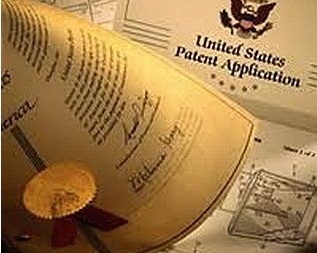

Just days after Ericsson filed a patent-infringement complaint against Samsung in a US District Court in Texas, the Swedish company on 30 November escalated its compliant to the International Trade Commission (ITC).
The complaint, originally reported by the IDG News Service, asks the ITC to exclude from entry into the United States “certain consumer electronics, including mobile phones, tablets, televisions and media players that infringe one or more claims of [several patents].”
Ericsson also asks that a “cease and desist order prohibiting Samsung from engaging in the unlawful importation and/or sale within the United States after importation of certain consumer electronics, including mobile phones, tablets, televisions and media players that infringe [on several patents].”
Ericsson currently licenses the “asserted patents” to large companies that could “easily fill any void in the market” created by the departure of the Samsung devices, Ericsson wrote.
The 37-page document filed with the ITC makes clear Ericsson’s history of keeping tabs on its patents and how incredibly tedious it would be to be a patent lawyer. Or maybe to work for one.
Samsung twice renewed patents with Ericsson, in 2001 and 2007, but according to a 27 November statement from Ericsson, regarding its filing with the court in Texas, after two years of negotiations, Samsung had let the agreement expire.
“The dispute concerns both Ericsson’s patented technology that is essential to several telecommunications and networking standards used by Samsung’s products as well as other of Ericsson’s patented inventions that are frequently implemented in wireless and consumer electronics products,” Ericsson said in the statement, concluding that officials felt they had “no option other than legal action.”
Samsung, in a responding statement, said that Ericsson’s terms had become unreasonable.
“Samsung has faithfully committed itself to conducting fair and reasonable negotiations with Ericsson over the past two years, but Ericsson has demanded prohibitively higher royalty rates to renew the same patent portfolio,” Samsung officials said in a statement. “As we cannot accept such extreme demands, we will take all necessary legal measures to protect against Ericsson’s excessive claims.”
Such cases have become a dime-a-dozen in a fast-growing industry in which competitors feel pressured to, beyond device sales, make the very best use of their assets.
On 28 November, Nokia – which has one of the industry’s more enviable patent portfolios and has promised shareholders it will work harder to squeeze cash from it – asked courts in the United States, the United Kingdom and Canada to ban sales of Research In Motion’s BlackBerry smartphones until RIM renews its licensing agreements with Nokia.
The patents in question have to do with the 802.11 wireless LAN standard.
RIM responded to Nokia’s filing, telling eWEEK 28 November: “Research In Motion has worked hard to develop its leading-edge BlackBerry technology and has built an industry-leading intellectual property portfolio of its own. RIM will respond to Nokia’s petitions in due course.”
Earlier in November, Apple and HTC reached a patent-licensing agreement, bringing closure to a 2010 complaint that effectively encouraged an entire industry to follow suit.
How much do you know about Samsung? Find out with our quiz!
Originally published on eWeek.
Notable development for Meta, after appeal against 2021 WhatsApp privacy fine is backed by advisor…
First sign of shakeup under new CEO Lip-Bu Tan? Three Intel board members confirm they…
Trump's nominee for SEC Chairman, Paul Atkins, has pledged a “rational, coherent, and principled approach”…
After being 'retired' by Intel's board of directors, ex-CEO Pat Gelsinger has joined a VC…
President touts easing Chinese tariffs to facilitate TikTok sale, and also implements 25 percent tariff…
Copyright lawsuit against OpenAI and Microsoft from The New York Times and other newspapers can…